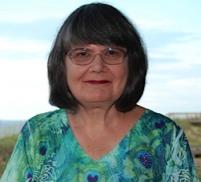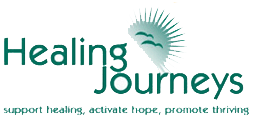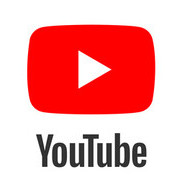By Marilyn Holasek Lloyd, RN, MALS

My breast cancer diagnosis and treatment decisions happened like some nonfiction drama or screenplay. The climax occurred on July 4, 1996 and the special effect was the movie Independence Day.
My surgical choices started the story, and the results were dramatic. I had eight mammos, a CAT scan and ultrasound, and then an excisional biopsy that removed the 1.5 cm tumor. My surgeon had recommended a clean-up surgery followed by radiation. Contrary to his wishes, I chose a mastectomy with another simple mastectomy on the other side — a choice based purely on gut instinct and divine guidance. It turned out that I had another 1.5 cm tumor hiding behind a cyst and the surgeon got it by 1 millimeter. He hadn’t even known it was there.
My surgeon confirmed that if I had done what he actually told me to do, I’d be dead.
It was then I realized I was writing my own screenplay.
I wish the drama could have ended here, but I needed to see an oncologist and I got two opinions for my stage one breast cancer. Both doctors recommended the strongest chemo possible because of a high nuclear grade. Both ignored my questions and concerns about heart damage, leukemia, digestive tract problems and, most of all, my “normal” low white count. They also ignored my research on oophorectomies. I was flabbergasted at the small reduction of risk — just 8-10% (which I didn’t realize was really only 3% absolute benefit -- another story) — that this chemo provided.
At the second consultation, I became really emotionally upset. At the same time the doctor was saying he would take care of me, I felt, he was throwing in some medical hexing, too. I came out of his office frozen in fear. That fear made me say I would do the chemo, but it had to be delayed because of the July 4 weekend.
On Saturday, July 3, I was calling a friend every hour. “Yes, I am going to do it; no, I can’t do it.” To calm down, I listened to a Deepak Chopra tape — the one in which Chopra talks about mice that merely looked at the chemo drug Adriamycin and had their immune systems drop. That was my light bulb moment.
The climax of my drama was on July 4. My surgeon and his wife — our friends — went with us to see the movie, Independence Day. Watching that movie, I made my final decision.
Coming out of the theater, I took my husband’s arm and said, “I can’t do it.” I felt the medicine would kill me rather than cure me, and I wanted to live. My husband — an OB/GYN — freaked out in the parking lot and I had to say, “This is not negotiable.” That is the term he always used with the children.
He finally calmed down when I told him I would be willing to have an oophorectomy to reduce my risk of recurrence. When I told the oncologist “no chemo,” he hexed me again but I ran out crying for joy. Now I felt I had a chance to live. I finally felt peace.
In this drama the supporting characters made a crucial difference. My husband supported every integrative therapy I chose from that time forward. My daughter (19) took care of me all summer while I recovered from two major surgeries. My son (20) emotionally supported me at night after work. My extended family and most of my friends respected my choices.
I changed every aspect of my life, from diet to exercise to regularly consulting a wellness guide to finally finding Dr. Peter D’Adamo and following his holistic protocol. That was all 16 years ago.
Then, two years ago, I found myself back in another oncologist’s office with blood problems (not related to the breast cancer). “You made all the right decisions for yourself 14 years ago,” he said, looking over my chart. I nearly fell off of my chair.
With more research, I did indeed see what this oncologist was talking about: chemo would have been the worst thing for me to do 16 years ago. Two oncologists made the wrong recommendations for me and divine guidance prevented me from listening to them.
The take-home message from my breast cancer drama is this: Do your research (or find someone who can), ask questions, go with your gut instincts because they are probably divinely guided, and ask for support. Pay attention to those light bulb moments, and most of all celebrate your own journey, your own story.
After all, we only get one chance in this big screenplay of life.
Because I lived, I saw both children graduate from college, get engaged and then married, and I now have five grandchildren, ages 6 and under. And I was also able to take care of my husband through four intense years of his many illnesses until his death.
– – – – – – – – – – – – – – – – – – – – – – – – – – – – – – – – – – – – – – – – – – – – – – – – – – – – – – – – – – – – – – – – – – – – – – – – – –
(Everyone’s cancer is different. Your journey needs to be decided between you and your physicians.)
Bio: Marilyn Holasek Lloyd is an RN, previous holistic health instructor, and a retired adjunct instructor in the liberal arts. All of her background as a nurse, public speaker, and as an English instructor ignited her passion for writing. Being a breast cancer survivor merged all of her fields, and provided her the background to be a patient advocate for herself, her family, friends, and to a wider audience through her writing (google Marilyn Holasek Lloyd for more information; she is also one of the moderators of BC Study and Support — a Yahoo! group).


